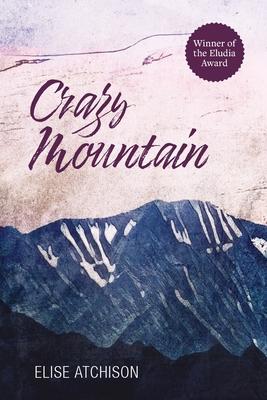Winner of The Eludia Award, Elise Atchison's Crazy Mountain chronicles a rapidly changing place and community through the diverse and conflicting stories of the people who live in a fictional mountain valley in Montana over nearly half a century (1970-2015). As newly built roads carve through the primal wild, and the rural landscape transforms into subdivisions, McMansions and resorts, conflicts escalate between locals and newcomers, developers and environmentalists, the wealthy and the homeless. Through multiple perspectives we hear the voices of ranchers, real estate agents, carpenters, artists, New Agers, Native American activists, landscapers, movie stars, musicians, pizza delivery drivers, gun-toting fundamentalists, and others including Kate, a troubled young woman who becomes homeless over the course of the book and whose own story in many ways mirrors the destruction and resurrection of the land. These varied threads weave together into a rich tapestry of place, exploring timely themes of housing booms and homelessness, loss of open land to development, cultural clashes, and the correlation between how we treat the natural world and how we treat each other, especially the most vulnerable among us. What does it mean to lose a place we love, and what does it mean to gain from it? Perhaps it depends on perspective.

Winner of The Eludia Award, Elise Atchison's Crazy Mountain chronicles a rapidly changing place and community through the diverse and conflicting stories of the people who live in a fictional mountain valley in Montana over nearly half a century (1970-2015). As newly built roads carve through the primal wild, and the rural landscape transforms into subdivisions, McMansions and resorts, conflicts escalate between locals and newcomers, developers and environmentalists, the wealthy and the homeless. Through multiple perspectives we hear the voices of ranchers, real estate agents, carpenters, artists, New Agers, Native American activists, landscapers, movie stars, musicians, pizza delivery drivers, gun-toting fundamentalists, and others including Kate, a troubled young woman who becomes homeless over the course of the book and whose own story in many ways mirrors the destruction and resurrection of the land. These varied threads weave together into a rich tapestry of place, exploring timely themes of housing booms and homelessness, loss of open land to development, cultural clashes, and the correlation between how we treat the natural world and how we treat each other, especially the most vulnerable among us. What does it mean to lose a place we love, and what does it mean to gain from it? Perhaps it depends on perspective.